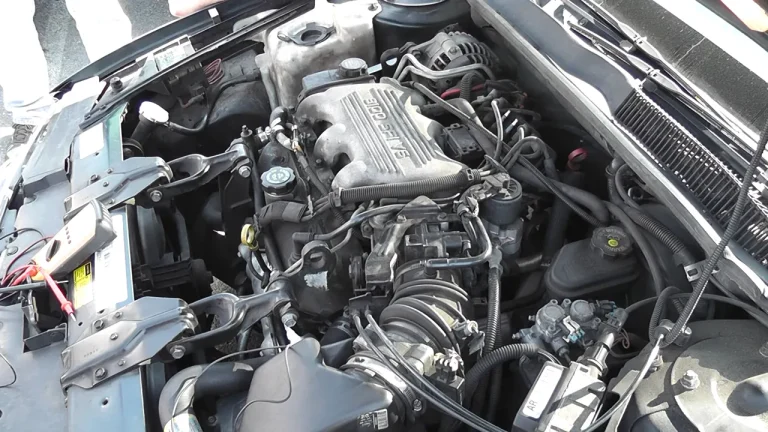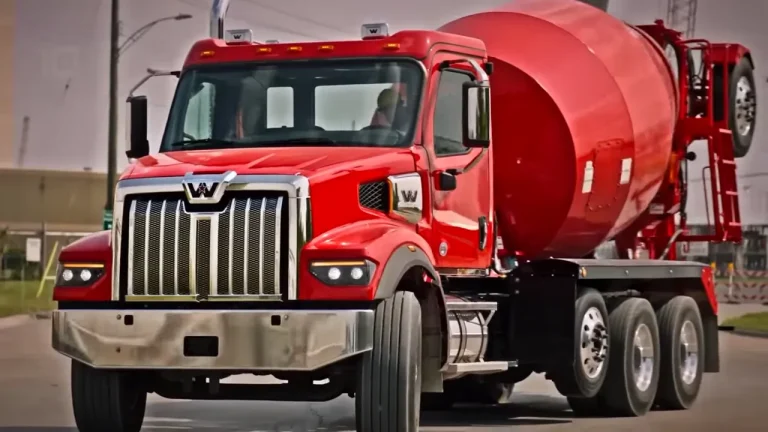How Much Are Dyno Tunes? (Find Out Here!)
Dyno tunes typically cost around $500 to $1,000 on average. A dyno tune is a process of fine-tuning a vehicle’s engine for optimal performance.
When it comes to optimizing a vehicle’s performance, dyno tunes play a crucial role. They involve using specialized equipment to measure and adjust various engine parameters, ensuring the engine operates at its peak potential. The cost of a dyno tune can vary depending on factors such as the complexity of the vehicle’s engine, location, and the expertise of the tuning technician.
On average, expect to pay anywhere from $500 to $1,000 for a professional dyno tune. Investing in a dyno tune can yield significant improvements in horsepower, torque, throttle response, and overall drivability of your vehicle. So, if you’re looking to unlock the full potential of your engine, a dyno tune is worth considering.
Understanding Dyno Tunes: A Brief Overview
Dyno tunes are an essential aspect of optimizing the performance of your vehicle’s engine. Whether you’re a car aficionado or just looking to enhance your vehicle’s power output, understanding the basics of dyno tunes is crucial. In this section, we’ll dive into what dyno tunes are, how they work, and why they play such a significant role in maximizing engine performance.
What Are Dyno Tunes And How Do They Work?
Dyno tunes involve fine-tuning your vehicle’s engine using specialized equipment called a dynamometer, or “dyno” for short. Here’s a breakdown of the key points:
- Dyno tunes are a process of optimizing the engine’s performance by adjusting various parameters such as air-fuel ratio, ignition timing, and throttle response.
- A dynamometer is a tool that allows technicians to measure and evaluate the engine’s output and diagnose any potential issues that can hinder performance.
- During a dyno tuning session, the technician connects the dynamometer to the vehicle’s drivetrain and runs the engine at different speeds and load conditions. This helps in determining the engine’s current state and areas that require improvement.
- By analyzing the data collected from the dynamometer, the technician can make precise adjustments to the engine’s settings, ensuring optimal power output and performance.
The Significance Of Dyno Tunes For Power Optimization
Dyno tuning is not just a luxury for car enthusiasts; it offers tangible benefits in terms of power optimization. Here are the key reasons why dyno tunes are essential:
- Improved horsepower and torque: Dyno tunes maximize the engine’s power output, resulting in increased horsepower and torque. This translates into a more responsive and exhilarating driving experience.
- Better fuel economy: Properly calibrated engine settings achieved through dyno tuning can lead to improved fuel efficiency. By optimizing parameters like air-fuel ratio, the engine can achieve ideal combustion, reducing fuel consumption.
- Fine-tuned drivability: Dyno tunes can smooth out rough areas in the engine’s power delivery, eliminating flat spots or hesitation. This results in a more linear and predictable acceleration, making it easier to control the vehicle.
- Optimal performance modifications: If you have made modifications to your vehicle such as installing aftermarket parts or upgrading the engine, dyno tuning ensures that these modifications are utilized to their full potential. It maximizes the gains from your investments in performance enhancements.
The Role Of Dyno Tunes In Enhancing Engine Performance
Dyno tunes are essential for squeezing every bit of performance out of your vehicle’s engine. Key points to consider include:
- Customized optimization: Dyno tunes are tailored to the specific needs of your vehicle. The technician takes into account factors such as your vehicle’s make, model, modifications, and intended use to create a personalized tune that optimizes performance.
- Addressing limitations: Many stock vehicles are detuned from the factory to meet emissions standards or achieve better fuel economy. A dyno tune can bypass these limitations, unlocking the full potential of your engine and harnessing its true power.
- Diagnosing issues: A dyno tune session can also help diagnose any underlying mechanical issues or inconsistencies affecting performance. By analyzing the data, technicians can identify areas that require attention and address them promptly.
Dyno tunes play a pivotal role in optimizing engine performance. By fine-tuning the engine’s settings based on data gathered from a dynamometer, dyno tunes maximize horsepower and torque, improve fuel economy, and enhance drivability.
Whether you’re looking to extract every ounce of power from your vehicle or enhance the driving experience, dyno tunes offer a comprehensive solution for power optimization.
Factors Influencing The Cost Of Dyno Tunes
If you’re considering getting a dyno tune for your vehicle, it’s important to understand the factors that can influence the cost. While the price can vary depending on several factors, the following are the key considerations that determine how much you’ll end up paying for a dyno tune.
The Complexity Of The Engine And Its Modifications
- The more complex your engine setup is, the more time and effort it will take to properly tune it, influencing the overall cost.
- Additional modifications, such as aftermarket fuel injectors, turbochargers, or superchargers, can increase the complexity of the tuning process.
- Highly modified engines often require custom tuning to optimize performance, which can lead to additional charges.
The Reputation And Experience Of The Tuning Shop
- Well-established and reputable tuning shops generally charge higher fees for their services.
- Highly experienced tuners often have a greater understanding of various engine setups, allowing them to perform more precise and effective dyno tunes.
- While the cost may be higher, going to a reputable shop can provide you with the peace of mind that your vehicle is in capable hands.
The Type Of Dyno Used For The Tuning Process
- Different types of dyno equipment come with varying costs. Generally, the more advanced and accurate the dynamometer, the higher the price you can expect.
- Some tuning shops may offer different dyno options, such as a basic chassis dyno or a more precise engine dyno, each with their own price points.
- Choosing the appropriate dyno for your specific needs and goals is an essential factor in determining the overall cost of the dyno tune.
Additional Charges For Customizations And Fine-Tuning
- Customizations and fine-tuning can increase the cost of a dyno tune. These adjustments address specific requirements and preferences.
- If you have unique requests, such as specific power targets or a specific fuel type, these may require additional time and effort from the tuner, leading to extra charges.
- Fine-tuning involves optimizing various parameters, such as ignition timing, fuel delivery, and air-fuel ratios, to achieve peak performance and drivability.
Several factors contribute to the cost of a dyno tune, including the complexity of the engine, the reputation of the tuning shop, the type of dyno equipment used, and any additional customizations or fine-tuning required. While the exact price may vary, it’s crucial to consider these factors to ensure you’re getting the most out of your dyno tune experience.
So, take your time to research and choose wisely when it comes to getting a dyno tune for your vehicle.

Average Pricing And Cost Breakdown Of Dyno Tunes
Evaluating The Range Of Prices Offered By Different Tuning Shops
When it comes to dyno tunes, it’s essential to understand the range of prices offered by different tuning shops. Prices can vary widely depending on several factors, such as the reputation of the shop, the level of expertise of its technicians, and the complexity of the tuning job required.
Here are some key points to consider:
- Pricing can range from $500 to $1,500 or more for a dyno tune. This wide range is primarily due to variations in shop reputation, location, and expertise.
- High-end tuning shops with a strong reputation and extensive experience may charge a premium for their services. These shops often have a track record of delivering high-quality results.
- Shops located in metropolitan areas or regions with a higher cost of living may also charge more compared to those in rural areas.
- Some shops may offer package deals that include additional services like installation or upgrades. This can affect the overall cost of the dyno tune.
- It’s important to research and compare prices from different tuning shops to ensure you are getting a fair deal. Don’t just settle for the cheapest option, as quality and expertise play a significant role in the success of a dyno tune.
Understanding The Cost Structure Of Dyno Tunes
To fully grasp dyno tune pricing, it’s crucial to understand how the cost structure of these services is determined. Here are the key points to consider:
- Dyno tunes often involve multiple steps, including baseline testing, diagnostic runs, adjustments, and fine-tuning. Each of these steps requires time, expertise, and resources, which contribute to the overall cost of the tune.
- Shops may have a flat fee for their dyno tuning services, covering a specific number of hours or a set of adjustments. Additional charges may apply if the tuning process exceeds the estimated time or requires additional work.
- Some tuning shops charge an hourly rate for dyno tunes. This can vary depending on the shop’s reputation, location, and level of expertise.
- Shops may also factor in the complexity of the tuning job when determining the cost. Highly customized or specialized tunes may require more time and effort and therefore come at a higher price.
Factors That Contribute To Higher Or Lower Prices
Several factors contribute to the variation in dyno tune prices among different tuning shops. Here are some key factors to keep in mind:
- Reputation and expertise of the tuning shop: Shops with a strong reputation and extensive experience may charge higher prices due to their track record of delivering successful tunes.
- Location: Shops in metropolitan areas or regions with a higher cost of living typically have higher overhead expenses, which can impact their pricing.
- Level of customization: Highly customized tunes that require additional time and effort may come at a higher price compared to more straightforward tunes.
- Additional services: Shops offering additional services like installation, upgrades, or post-tune support may charge higher prices to account for these add-ons.
- Equipment and technology: Shops equipped with state-of-the-art tools and technology may charge more to cover the costs associated with maintaining and updating their equipment.
Assessing The Value For Money In Dyno Tunes
When evaluating the value for money in dyno tunes, it’s important to look beyond the price tag. Here are some factors to consider:
- Reputation and expertise: A well-established tuning shop with a strong reputation and experienced technicians may be worth paying a premium for, as they are more likely to deliver exceptional results.
- Customer reviews and testimonials: Reading reviews and testimonials from previous customers can provide insights into the quality of a shop’s services and help assess whether they offer good value for money.
- Track record: Evaluate a tuning shop’s track record by researching their past projects and successes. This can give you an idea of their ability to deliver on their promises.
- Additional services and support: Consider whether the shop offers any additional services or post-tune support. These can add value and justify a higher price.
- Quality of equipment and technology: Shops equipped with top-of-the-line tools and technology may provide more accurate and precise tuning, leading to better performance and reliability.
Remember, the price of a dyno tune shouldn’t be the sole determining factor. It’s essential to evaluate the overall value, reputation, and expertise of the tuning shop to ensure you make an informed decision and get the most out of your investment.
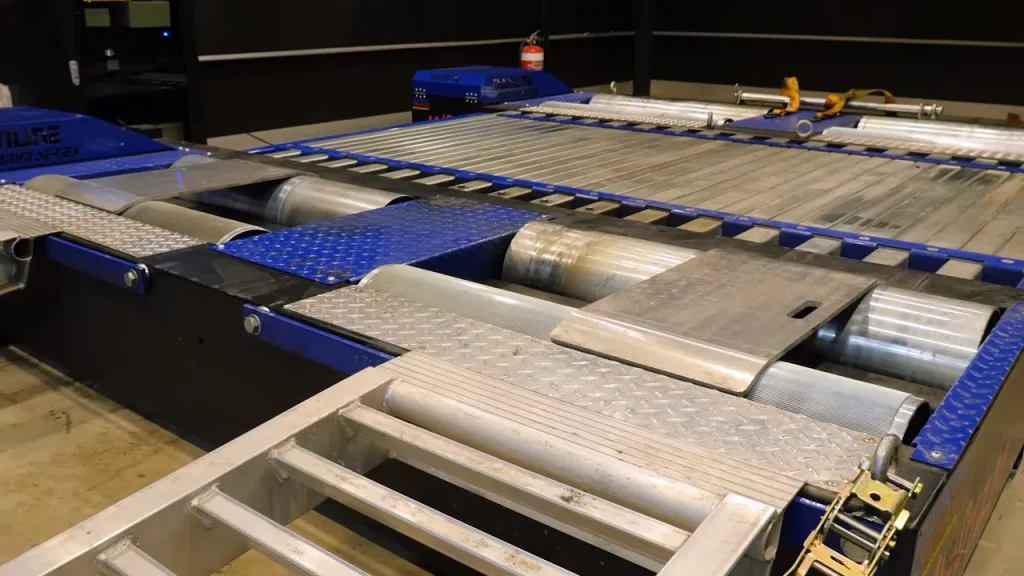
Hidden Costs And Additional Services
Uncovering Any Additional Costs Or Fees Associated With Dyno Tuning
Dyno tuning is a popular method used to optimize a vehicle’s performance by fine-tuning its engine and other components. While dyno tuning can provide significant benefits, it’s essential to consider potential hidden costs or additional services that may arise during the process.
Let’s take a closer look at what these might be:
- Extra parts and upgrades: In some cases, the initial base cost of the dyno tuning may not include any necessary parts or upgrades. It’s crucial to inquire about potential costs for items such as fuel injectors, air intakes, throttle bodies, or even a new exhaust system.
- Diagnostic services: Before the actual tuning takes place, it’s common for a vehicle to undergo diagnostic services. These may include a thorough inspection of the engine, fuel system, ignition system, and other components. Keep in mind that diagnostic services usually incur additional charges.
- Dyno time: The amount of time spent on the dynamometer can directly impact the overall cost of dyno tuning. The more complex the tuning requirements, the longer it may take to fine-tune your vehicle. Remember to ask about the hourly rate for dyno time and factor it into your budget.
- Customization and fine-tuning: Depending on your specific goals and preferences, you may require additional customization or fine-tuning work. This may involve adjusting the fuel mixture, ignition timing, or even modifying the engine’s performance parameters. Understand that these additional services may come at an extra cost.
The Importance Of Post-Tuning Services And Their Cost Implications
Dyno tuning doesn’t end once the initial tuning process is completed. It’s crucial to understand the importance of post-tuning services and their cost implications. Here are some key points to consider:
- Data analysis and adjustments: After the initial tuning, it’s customary to analyze the data collected during the dyno session to ensure optimal performance. This step includes fine-tuning any parameters that may require further adjustments. Keep in mind that this analysis and potential adjustments may involve additional charges.
- Maintenance and periodic checks: Once your vehicle has undergone dyno tuning, it’s important to plan for regular maintenance and periodic checks. This maintenance can range from oil changes and filter replacements to inspections of various components. While these services may incur some costs, they are essential for maintaining the optimized performance achieved through dyno tuning.
- Future updates and upgrades: As your vehicle’s performance needs evolve or new technologies emerge, you may consider future updates or upgrades. These can include additional modifications, improved software, or even new parts to keep up with the latest advancements. Remember to account for potential future costs and research any ongoing expenses that may arise.
- Expert advice and support: If you encounter any issues or have questions about your vehicle’s performance following dyno tuning, having access to expert advice and support is crucial. Ensure you factor in the cost of any support services or consultations that you may require in the future.
It’s essential to have a clear understanding of the potential hidden costs, additional services, and ongoing maintenance associated with dyno tuning. By taking these factors into account and budgeting accordingly, you can maximize the benefits of dyno tuning while avoiding any unpleasant surprises along the way.
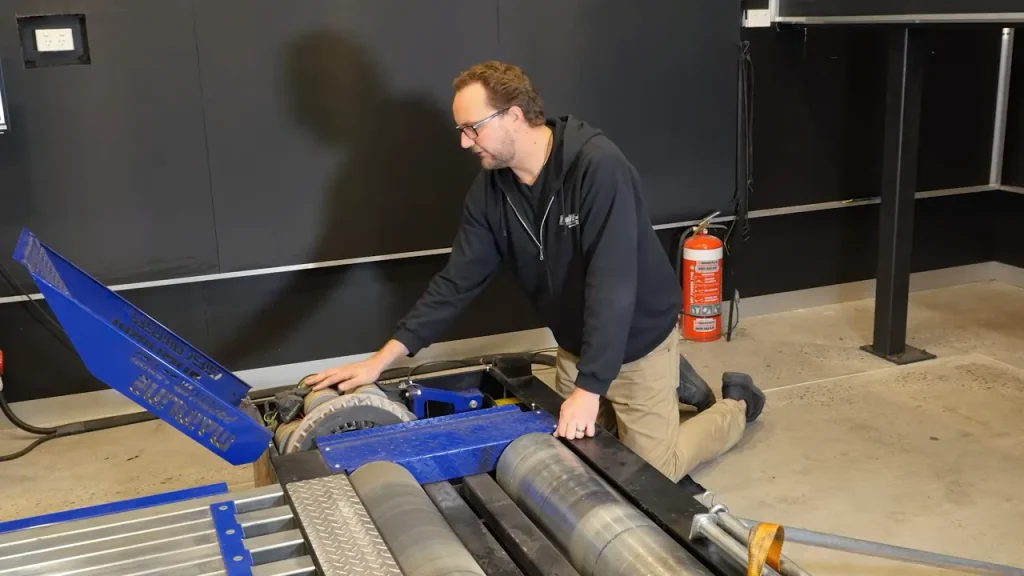
Do-It-Yourself Dyno Tunes Vs. Professional Dyno Tunes: A Cost Comparison
Weighing The Pros And Cons Of Diy Dyno Tunes
Dyno tuning is an essential process to optimize the performance of your vehicle. It involves fine-tuning the engine’s parameters to achieve maximum power and efficiency. When it comes to dyno tunes, you have two options: do-it-yourself (diy) or professional tuning.
Let’s weigh the pros and cons of each approach:
Plain paragraph:
- Diy dyno tunes:
- Pros:
- Cost-effective option for those on a tight budget.
- Gives you the freedom and control over the tuning process.
- Allows you to learn more about your vehicle’s engine and tuning aspects.
- Can be done at your own pace and convenience.
- Cons:
- Requires technical knowledge and experience in tuning.
- Requires access to a dynamometer and tuning software.
- There’s a risk of causing damage to your vehicle if not done properly.
- May take more time and effort to achieve desired results.
- Limited support and guidance compared to professional tuning.
Bullet points:
- Professional dyno tunes:
- Pros:
- Expertise and experience from professional tuners.
- Access to advanced diagnostic tools and equipment.
- Optimized performance and power gains.
- Proper and accurate tuning that minimizes the risk of engine damage.
- Ongoing support and guidance throughout the tuning process.
- Cons:
- Higher cost compared to diy tuning.
- Requires scheduling an appointment with a professional tuner.
- Limited control and involvement in the tuning process.
- Relies on the expertise and reputation of the tuner.
Analyzing The Potential Cost Savings Of Diy Tuning
When considering dyno tunes, the cost factor plays a significant role in decision-making. Let’s analyze the potential cost savings associated with diy tuning:
Plain paragraph:
- Diy dyno tunes:
- Cost of dyno equipment:
- Requires purchasing or renting a dynamometer, which can range from a few hundred dollars to several thousand dollars.
- Cost of tuning software:
- You’ll need access to tuning software, which can range from free options to paid software.
- Cost of additional tools and equipment:
- Depending on the complexity of your vehicle’s tuning, you may need additional tools and equipment, such as data loggers or diagnostic devices.
Bullet points:
- Professional dyno tunes:
- Cost of tuning session:
- Professional tuning sessions typically range from $500 to $1500, depending on the tuner’s experience and reputation.
- Cost of dyno time:
- The tuning session usually includes the cost of using the dynamometer, representing a significant portion of the overall cost.
- Cost of any parts or upgrades:
- If any additional parts or upgrades are needed during the tuning process, they would add to the overall cost.
- Cost of ongoing support:
- Professional tuners may charge additional fees for ongoing support and adjustments after the initial tuning session.
Comparing The Outcomes And Reliability Of Diy Vs. Professional Dyno Tunes
The ultimate goal of a dyno tune is to achieve optimal performance and reliability. Let’s compare the outcomes and reliability of diy and professional dyno tunes:
Plain paragraph:
- Diy dyno tunes:
- Outcomes can vary based on the individual’s knowledge and experience in tuning.
- There is a higher risk of incorrect tuning leading to reduced performance or even damage to the engine if not done properly.
- Reliability depends on the tuner’s understanding and ability to interpret data accurately.
Bullet points:
- Professional dyno tunes:
- Professional tuners have extensive experience and expertise, resulting in more consistent and reliable outcomes.
- They can identify potential issues and ensure the engine is tuned optimally for long-term reliability.
- The use of advanced diagnostic tools and data analysis provides more accurate results.
- Professional tuning can offer better performance gains due to the tuner’s in-depth knowledge and understanding of the vehicle’s specific needs.
Finding The Right Dyno Tuning Shop: Considerations And Recommendations
If you’re looking to get a dyno tune for your vehicle, it’s essential to find the right dyno tuning shop. With so many options out there, it can be overwhelming to choose the one that will provide the best results for your car.
To help you make an informed decision, here are some key factors to consider, questions to ask, and recommendations to guide you in finding a reputable dyno tuning shop.
Key Factors To Consider When Choosing A Dyno Tuning Shop
When selecting a dyno tuning shop, several crucial factors can affect the overall experience and outcome of the process. Take these into account before making your decision:
- Experience: Look for a shop with extensive experience in dyno tuning. A seasoned shop will have the expertise and knowledge needed to optimize your vehicle’s performance effectively.
- Reputation: Research the shop’s reputation within the automotive community. Check online reviews and testimonials to gauge the experiences of previous customers. A reputable shop will have positive feedback and a track record of customer satisfaction.
- Facilities and equipment: Check if the shop has state-of-the-art facilities and the latest dyno tuning equipment. This ensures that your car will be tuned using advanced technology, leading to accurate and precise adjustments.
- Specialization: Consider whether the shop specializes in tuning the type of vehicle you own. Shops that focus on a specific make or model often have in-depth knowledge and experience that can result in better tuning results.
- Support and aftercare: Find out what kind of support the shop offers after the tuning process. It’s crucial to choose a shop that provides ongoing support and assistance in case any issues arise or if adjustments are needed.
Questions To Ask And Information To Gather Before Committing To A Shop
Before committing to a dyno tuning shop, gather the following information and ask the following questions to ensure you have all the necessary details:
- Pricing: Inquire about the cost of the dyno tuning service, including any additional charges that may apply. Get a clear understanding of what is included in the price to avoid any surprises later on.
- Credentials: Ask about the certifications and qualifications of the technicians who will be performing the dyno tune on your vehicle. Ensure they have the necessary expertise to handle your car’s specific needs.
- Timeframe: Discuss the estimated timeframe for the dyno tuning process. This will help you plan accordingly and make arrangements for alternative transportation if needed.
- Warranty: Inquire about any warranties the shop offers for their dyno tuning services. A reputable shop will stand behind their work and provide assurances in case any issues arise post-tune.
Recommendations And Reviews For Reputable Dyno Tuning Shops
To help you kickstart your search for a reputable dyno tuning shop, here are some recommendations based on positive reviews from car enthusiasts:
- Performance tuning solutions: Known for their exceptional customer service and expertise in tuning various types of vehicles.
- Precision tuning motorsports: Highly recommended for their precision tuning and extensive experience in performance modifications.
- Dynamic performance tuning: A reputable shop that specializes in dyno tuning and has a loyal customer base.
Remember, it’s essential to do thorough research, read reviews, and gather all the necessary information before committing to a dyno tuning shop. By considering these key factors and asking the right questions, you can ensure a positive experience and optimal results for your vehicle’s performance.
Conclusion
Dyno tunes are a valuable investment for any performance enthusiast. They provide a customized and optimized tuning solution for your vehicle, ensuring that it operates at peak performance. While the cost of dyno tunes can vary depending on factors such as location and the specific services required, the benefits justify the investment.
By fine-tuning your engine and maximizing power output, dyno tunes can improve overall performance, including increased horsepower and torque. Additionally, dyno tunes can enhance fuel efficiency, resulting in long-term savings. And with the ability to diagnose and address any potential issues or inefficiencies in your vehicle’s performance, dyno tunes offer peace of mind while driving.
Whether you have a stock vehicle or a highly modified one, a dyno tune can unlock its true potential. So, whether you’re craving more power, better fuel efficiency, or simply want to optimize your engine’s performance, a dyno tune is the way to go.
Don’t underestimate the transformative power of a dyno tune – it’s your ticket to a more exhilarating and efficient driving experience.
- Why Are My Car Headlights Not Bright Enough? - May 9, 2024
- How Long Can You Drive With An EVAP Leak? - May 9, 2024
- What Does B Stand for in a Car? [Full Guide] - May 9, 2024
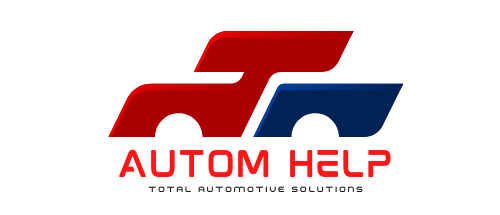
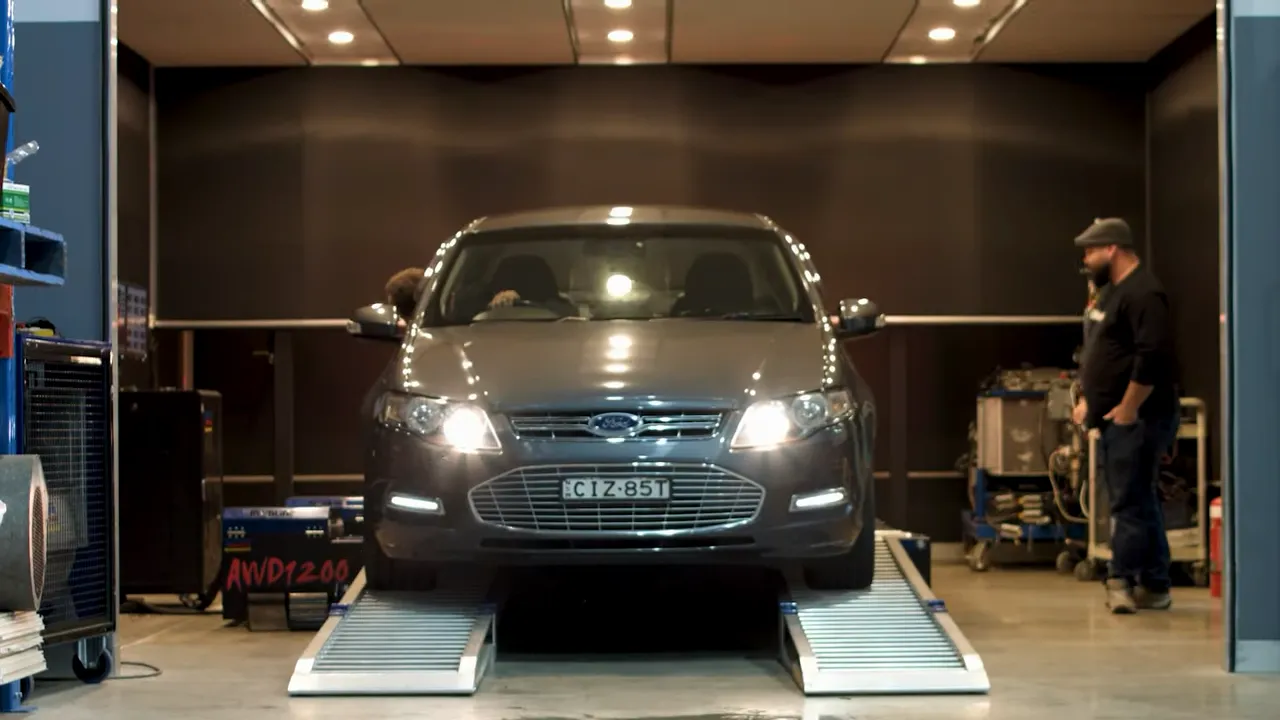
![Toyota Venza Years to Avoid [Guide for Car Buyers]](https://automhelp.com/wp-content/uploads/2023/07/This-is-BAD-BEWS-For-Toyota-Venza-Owners_000097353-768x432.webp)
